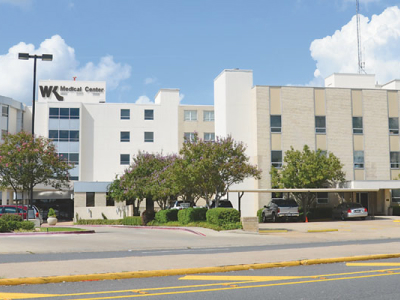Kidney Transplantation
A kidney transplant is often a treatment option for people with advanced kidney disease. Generally, a transplant can help you live longer and enjoy a better quality of life compared to staying on dialysis. At the Willis Knighton John C. McDonald Transplant Center, our dedicated transplant team has successfully performed more than 1,500 kidney transplants in the past 30 years. Our focus is to always provide the most patient centered care.
Indications for Kidney Transplantation at Willis Knighton John C. McDonald Transplant Center
- End stage renal disease
- Chronic kidney disease with estimated glomerular filtration rate (e-GFR) less than or equal to 20 ml/min/m2
- Age greater than or equal to 18 years at the time of listing
Once approved for a kidney transplant, patients are strongly encouraged to find a potential living donor. A transplant surgery is scheduled after a living donor is found, evaluated and approved. If no living donor is identified, the patient remains on the kidney wait list until a deceased donor kidney is found.

Living Donor Transplantation
Choosing to become a living donor is a wonderful way to give the gift of life. If you’re interested in being a living donor, you’ll have a chance to talk with our caring living donor team.
Kidneys from living donors tend to have better long-term survival rates compared to kidneys from deceased donors. Plus, the wait for a kidney from a deceased donor can take three to six years, making living donation the preferred choice whenever possible.
Before donating, a living donor goes through a thorough evaluation by our multidisciplinary team of experts. This team checks to see if the donor is healthy and ready both physically and emotionally. The surgeon and nephrologist evaluating the donor do not assess the kidney recipient, which helps them provide an unbiased evaluation and advice to the donor.
After donation, the living donor must follow up with us at six months, one year and two years after the procedure, or more frequently if necessary.
IOTA Model Beneficiary Notification
This kidney transplant hospital has been selected by the Centers for Medicare & Medicaid Services (CMS) to participate in the Increasing Organ Transplant Access (IOTA) Model. The IOTA Model aims to increase access to life-saving transplants for patients living with end-stage renal disease (ESRD) and reduce Medicare expenditures.

Refer a Patient
The John C. McDonald Regional Transplant Center welcomes referrals from providers and dialysis centers.

Subscribe to our Transplant Center Newsletter
Gain important information about organ transplantation resources at Willis Knighton















